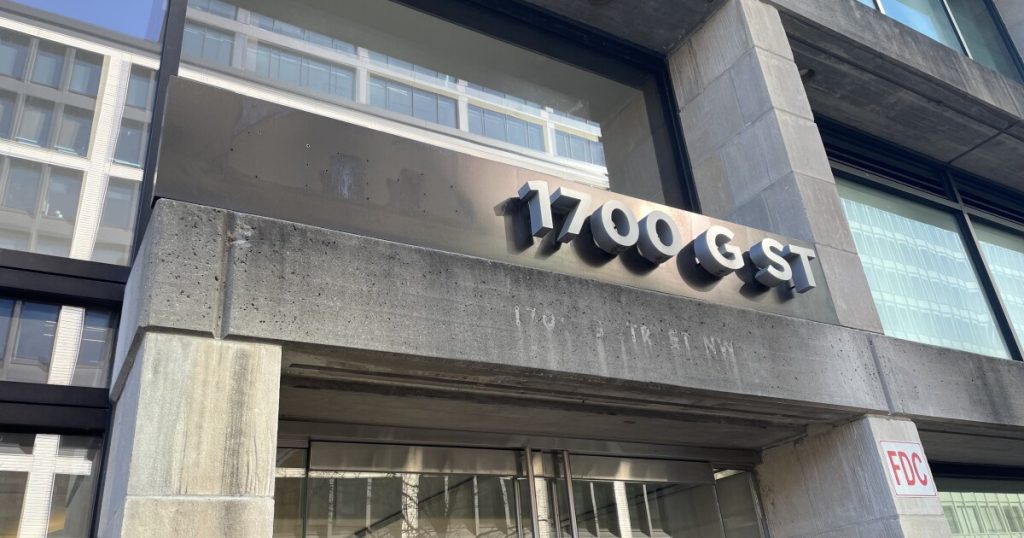Catherine Leffert
A federal judge on Friday prohibited the Trump administration from carrying out a mass firing at the Consumer Financial Protection Bureau, saying the CFPB’s leadership was “thumbing their noses at both this court and the Court of Appeals.”
At a hearing Friday morning, U.S. District Court Judge Amy Berman Jasckson orally blocked the CFPB’s leadership from issuing any reductions-in-force, or RIFs. She
“It is incumbent upon the court once again to preserve the status quo,” Jackson
To protect CFPB employees’ access to work systems, including email and internal platforms, Jackson wrote that they “may NOT be discontinued at 6:00 pm today.”
The Department of Justice, representing the CFPB, voiced no objection to her directive. The CFPB did not respond to a request for comment.
Deepak Gupta, an attorney for the NTEU, said in a statement that he was pleased that the court “put an immediate halt to this violation today and we look forward to continuing to press our case in court.
Jackson suspended
A lawyer for the National Treasury Employees Union on Thursday had filed an emergency motion for an order to show cause with the U.S. Court of Appeals for the D.C. Circuit. The union asked why the CFPB’s leaders should not be
Jackson did not mince words in calling out the CFPB’s leadership for ignoring
“There is reason to believe that the defendants simply spent the days immediately following the Circuit’s relaxation of the order, dressing their RIF in new clothes, and that they are thumbing their nose at both this Court and the Court of Appeals,” Berman Jackson’s order reads.
The legal fight between the union and the CFPB’s leadership under the Trump administration began in February when Vought issued a
Jackson cited six declarations filed by the National Treasury Employees Union that she said “paint a dramatically different picture” of the CFPB’s mass firings compared with declarations made by Mark Paoletta, the CFPB’s chief legal officer.
Gupta, representing the NTEU, said it was “unfathomable” that the CFPB’s leadership could make the assessment of the performance of nearly 1,500 employees in just three days to comply with the orders from the appeals court panel. The panel specifically stated that the CFPB had to make a “particularized assessment,” of whether workers were “unnecessary to the performance of the [CFPB’s] statutory duties.”
The bureau cut “90% of its staff in just 24 hours, with no notice to people to prepare for that elimination,” Chopra said in a
Vought and Paoletta sent
Paoletta filed a declaration with the court on Friday claiming that he and two other CFPB attorneys, on an unspecified date, had “conducted a particularized assessment to determine which employees are unnecessary for the Bureau to perform its statutory duties,” as required by the appeals panel.
Jackson wrote that the declaration does not describe any consultation with the heads of the various offices involved. In addition, no managers in the bureau’s Consumer Response unit were consulted by agency leadership about the level of staff needed to perform the office’s statutory duties, which were explicitly part of the order. She also wrote that there was no explanation for “how the RIF would affect its ability to respond to the thousands of consumer complaints and inquiries from banks that it receives.”
The RIF notice would have reduced the statutorily-mandated Consumer Response Office from 135 employees to eight.
“Once again, the Court is confronted with evidence that gives rise to concerns that there will be no agency standing by the time it gets to consider the merits, by the time the Court of Appeals rules on the legality of the preliminary injunction, or even by the time it holds a hearing on the motion to enforce the Order,” the judge wrote. “The Court has significant grounds for concern that the defendants are not in compliance with its Order as it was refined by the Court of Appeals.”

